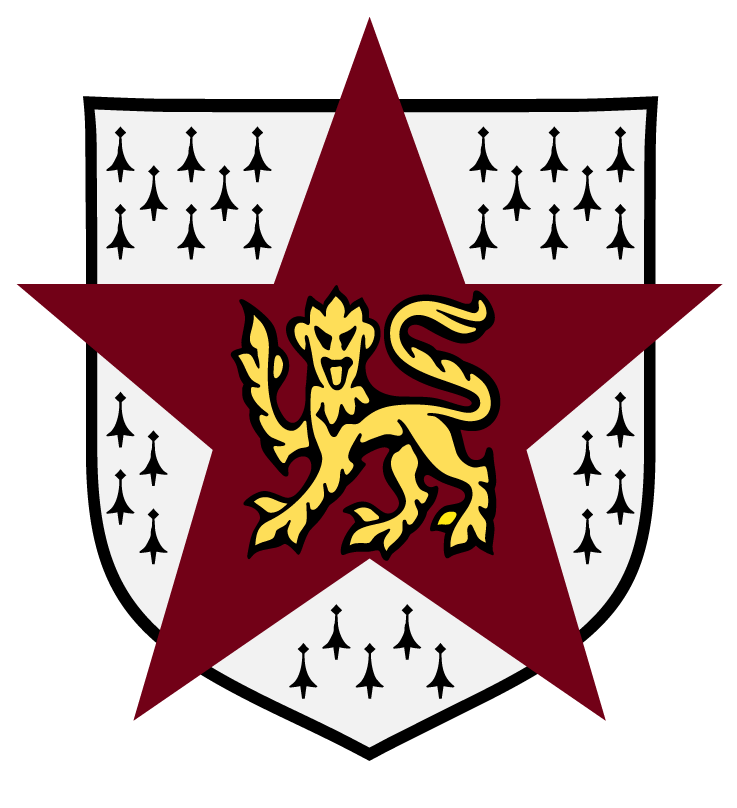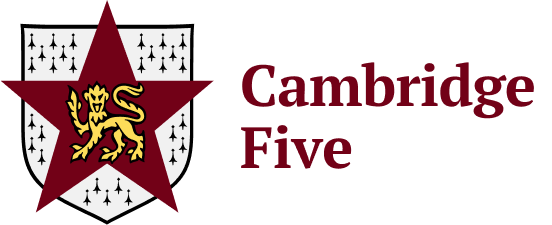The Philby School
Little is known about the final chapter of Kim Philby’s life from 1963 to 1988 except for what he revealed during occasional interviews with Western journalists, his correspondence with Sunday Times reporter Phillip Knightley and articles about his renewed friendship with Graham Greene. Kim never sought out publicity as an individual and even less so as an intelligence agent.
The lack of information about the "mysterious super spy" gave rise to lots of speculation in the West. Frederick Forsyth’s The Fourth Protocol, the pinnacle of such rumour mongering, alleges that Philby devised the diabolical plan to carry out nuclear sabotage in Britain. When Philby learned about the book’s publication, he was keenly interested in getting a copy as soon as possible and read with great interest about what he "accomplished". He kept this spy thriller in a prominent place
in his library.
In actuality, everything was much more prosaic. Kim did consult for the KGB on the activities of Western intelligence agencies, although, sadly, his opinion was not always heeded despite the unique experience of this highly qualified professional. Philby was an avid reader and worked on his own memoires during this period. He travelled around the country extensively, meeting with the staff of KGB regional divisions.
But during his Moscow years, Kim had another occupation which inspired him
tremendously and which he took great pride in: he began mentoring the younger generation of intelligence officers.
In the early 1970s, after years of seclusion, Philby’s life took a significant turn for the better. He got married and began to travel more around the Soviet Union and other socialist countries. A younger and less conservative generation came into leadership positions in the intelligence service, opening up opportunities for Kim‘s teaching.
Evening, December 1975 In a secret flat in downtown Moscow, young people eagerly awaited the arrival of the "intelligence superstar." As Kim admitted later, he was nervous for his first meeting with young colleagues.
A few introductory words broke the ice, and Kim proceeded to speak enthusiastically about who he had dreamed of becoming when he entered Cambridge. Answering a question about his hobbies, he said:
"It gives me great pleasure to re-read the classics of English literature. I love hockey — as a spectator, of course. And one more hobby: cooking. If you doubt it, come and visit"
Philby would go on to use this "come visit" line to start off all of his regular meetings with young officers, where he shared his intelligence experience and imparted his wisdom. It was decided to form a group of three people each year headed by an "elder" — a senior officer of the British Department of the Political Intelligence Service.
The Philby Seminar was held with brief interruptions from 1976 until shortly before
he passed away in 1988 During that time, one and a half dozen young officers were schooled in his methods. Kim felt anxious to see his students each Friday, he printed out detailed memos and re-read a lot of literature. "How can I, being long ago detached from English reality, tell them something that they don’t know yet?" he worried.
Those doubts intensified when a meeting was attended by an "active" officer of the KGB’s London Station on leave. Philby listened attentively to the stories of the modern methods employed by the British intelligence agencies and, it seemed, even grew dispirited. After that, he put even more effort into preparing his seminars, if such a thing was possible.
Philby’s self-doubt was, of course, completely groundless. He offered the up-and-comers the rarest skills — his wisdom, his instincts, his artistry of the craft.
The students sat in armchairs and on the sofa around the coffee table with a simple spread for afternoon tea and a bottle of cognac. Kim used to drink Armenian or Georgian cognac cut with water, making it taste a bit like American bourbon. He smoked cheap unfiltered Soviet cigarettes or his favourite Gitanes or Gauloises when a delivery arrived.
The two to three hour classes flew by. The opening remarks of the "master" — who insisted on being called Kim or "Comrade Kim" — were usually followed by a lively discussion, all in English. The highlight was always when Philby, seemingly off the top of his head but in fact after careful preparation at home, would suggest various operational situations to run through and analyse. In one scenario, he was a British
counterintelligence agent trying to discover the true departmental affiliation of a newly arrived Soviet diplomat. Then he would transform into a government official dropping a minute piece of valuable information during small talk, which the operative must notice and unravel. By the end of each lesson, the students were dripping with sweat.
As an exercise, discussing international events, Philby would casually mention that, according to the information from the Vatican, the Pope in his upcoming encyclical was going to offer a new interpretation of one of the constructs of the Roman Catholic Church. The student would not pick up on this kernel of information and
instead try everything he can think of to extract other seemingly more interesting information from his interlocutor. But in the breakdown afterward, it would be revealed that the upcoming changes in the Vatican’s focus were likely to have an impact on public opinion in Latin American countries by inflaming anti-American sentiment, which would undoubtedly affect government policies in the region.

But that wasn’t all. At the request of the leadership of the KGB’s British department, Philby prepared evaluations of the seminar graduates. Each of them is a masterpiece of psychological analysis, offering a detailed assessment of the operational qualities and capabilities of each young intelligence officer. Like Kim himself, his evaluations were respectful and considerate, while offering a fairly comprehensive portrait.
In one evaluation, he noted that Vladislav (name changed) would be well received in British society and get along with people from different social groups, especially educated people. However, he had unorthodox ideas that might alienate ordinary people living in the suburbs.
Vladislav’s knowledge of English was sufficient to carry out ordinary tasks, Philby remarked, but sometimes his language skills could not keep pace with his thoughts and it was hard to follow his train of thought.
Philby praised his quick mind, originality and initiative, while adding that these
positive qualities need to be controlled in intelligence work. Some of Vladislav’s ideas were too complex to implement in real life, and introducing too many unknowns into a plan of action increases the risk of failure. He needed to simplify his ideas and try to achieve his goal in a more direct and simple way.
Philby deemed Vladislav probably the most nervous and excitable of the group,
leaving him with several important questions from their admittedly brief encounter that he felt he was not in the best position to answer: Will he be able to control himself as a conversation grows into a heated argument? Will he be able to remain
calm in the face of a sharply hostile attack of personal or political nature? How cool will he behave in the face of a serious professional crisis?
Philby reserved even higher praise for Marat (name changed). He would be very well received in the British society, Philby remarked, and if he were born in Britain, Marat would be working in the Foreign Office. He was confident Marat would be welcomed
in the circles of the British establishment, in the clubs of state officials, among the representatives of the liberal professions and in the academic world, while perhaps facing more difficulty with obstinate businessmen.
Philby deemed his knowledge of English sufficient for any routine task and believed he would be able to speak English very well after some time in the country. But it was not simply language skills, it was the combination of language proficiency and personal qualities, the combination of seriousness of intentions with modesty that made him a "typical Englishman".
He praised Marat’s clear thinking, approach to problem-solving and self-control, while conceding that the artificial nature of their encounters may have affected his judgement. Overall, he believed Marat was capable of resolving personal and professional problems of a delicate nature.
The only reservations harboured by the retired intelligence officer concerned Marat’s "modesty", which is an excellent quality for successfully operating in British society, but intelligence work sometimes requires a significant degree of self-confidence from operatives.
Most agents tend to need to be treated with compassion and understanding, Philby noted, but sometimes agents need a firmer hand; and while Marat was considered extremely well suited to working with the first category of agents, the second category was more of an open question, which Philby left to his superiors to decide.
And how perceptive were Philby’s evaluations? Kim was entirely right on Vladislav.
Two years into his foreign mission, he let his emotions get the best of him and began
acting irrationally. He was urgently recalled to Moscow, and that was the end of his
intelligence career.
Marat was more successful in the field, though his excessive softness, delicately
observed by Philby, was noticed in the future by almost everyone he had contact with
in the course of his KGB work, both at home and abroad.
Philby repeatedly said that he felt the burden of responsibility for each of his
students. He was keenly interested in their success, and with some he corresponded
on a regular basis. Here are some excerpts from his letters:
“I was extremely pleased to hear about your new important assignment, as evidenced
by your postcard from London with a view of St Paul’s Cathedral and its
surroundings. With all my heart I wish you good luck – and, as I have repeatedly told
all of you, you will need it very, very much!”
“I wish you all professional success, and if what I taught you makes the least
contribution to it, then I will be proud and happy.”
“I almost began to believe in telepathy. When your package arrived, I was reading a
novel, and one of its heroes ordered Pimms No 1, a drink that I haven’t thought of
since I left England for good in 1956 I thought: how odd that, after being estranged from English life over the years, suddenly a bottle of this very drink would appear!
There’s more: I recently sent my daughter a small order list, and forgot to include Lea
& Perrins hot pepper sauce and a soy sauce. While deciding whether to send a second
letter in pursuit of the first one, both sauces also arrived in your package. I must add
that the point here is not telepathy, but the fact that when people get to know each
other well, as in our case, an intuitive connection quickly establishes between them.”
“Kim was extremely happy to see his students,” his wife Rufina later recalled. But
over the years, it became harder for Philby to teach.
Over time, Kim Philby’s students became scattered all over the world. But the
knowledge that Philby imparted remained with them. The teacher passed on not only
his professional skills of the “second oldest profession,” as intelligence work is
sometimes called. He taught them to take a broad and objective view of the world
around them. Contrary to the prevailing stereotype of him that exists in the West, he
taught his students to work not against, but on Britain, the United States, etc.
But his biggest impact was probably that he stiffened the spines of most of his
students, who were inspired by his own example – inspired, never commanded – to
always remain true to their oath once taken and to their own convictions.
In various parts of Great Britain, when entering university or college, students often
meet a gray-haired, noble old chancellor – a former diplomat with the rank of
ambassador or a high-ranking civil servant in a soft tweed jacket with leather elbow
pads and corduroy trousers. He keeps a watchful but tender eye on the young men as
they goof around and pull pranks, while they respectfully listen to his wise counsel,
even if they don’t always heed it.
Kim Philby refashioned himself as something similar to this British archetype in the
country that he considered his homeland. Surely this is one of the reasons why he
lived his Moscow years in happiness.


